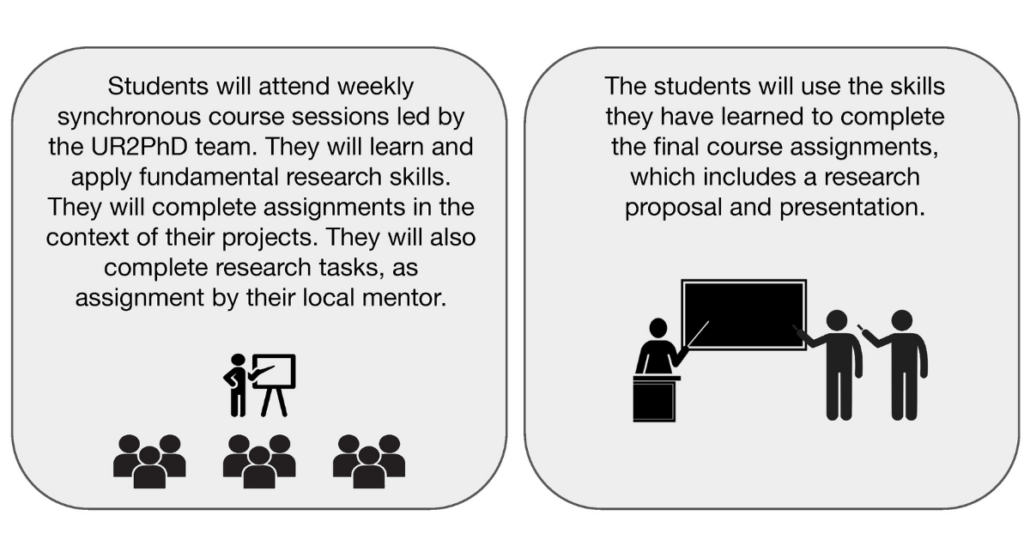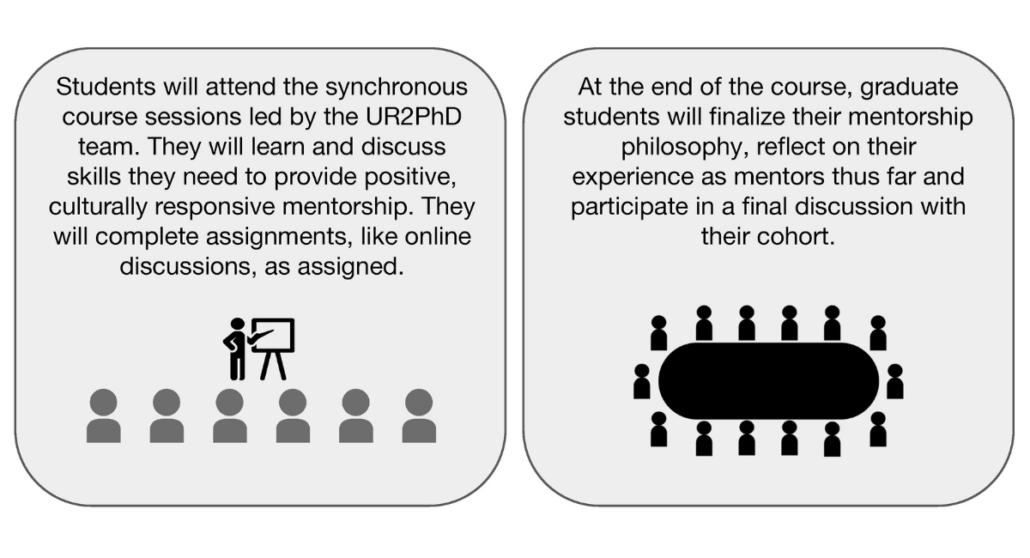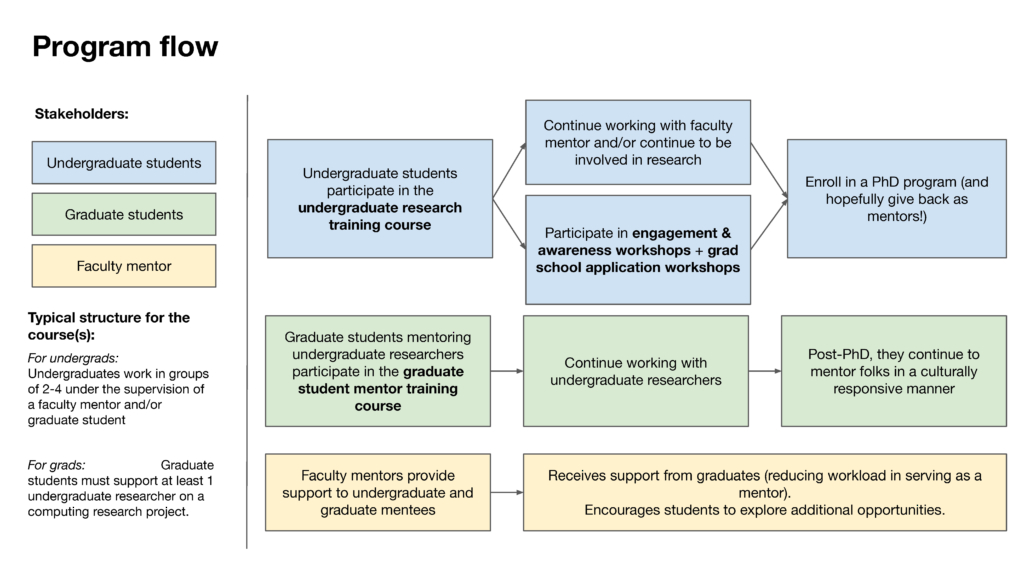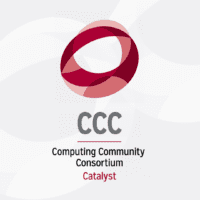UR2PhD Provides Support for First-Time Researchers and Their Mentors – Here’s How You Too Can Get Involved!
By Julia Sepulveda, Senior Program Associate, CRA-E
The UR2PhD program makes it easier to mentor undergraduate researchers at scale. More than 300 undergraduates have taken the UR2PhD research training course, where they’ve learned and practiced essential research skills while actively contributing to a research project.
The UR2PhD team is thrilled to announce that in 2025 there will continue to be opportunities for students, mentors, and departments to get involved. In the winter/spring, summer, and fall terms, the UR2PhD program will offer the undergraduate research training course and the graduate student mentor training course. Faculty, graduate students, and first-time undergraduate researchers are highly encouraged to explore how these programs can help support their professional development.
About the Undergraduate Research Training Course
The undergraduate research training course is an apprenticeship style course designed to help students kickstart their research journey. The 10-session course enables students to work collaboratively to generate a research proposal that they can implement post-course.
There are two primary pathways into the course: institutional partnerships and individual applications. Irrespective of the entry path, all students must be working in groups of 2-4 students and must be able to attend the same synchronous course session as their groupmates in order to be eligible to participate.

Our team anticipates that students will receive either course credit or pay from their local institution for their engagement in the course. Students who successfully complete the course may also be eligible for additional funding opportunities, including technical conference travel awards and REU funding.
To learn more about the course and apply, please visit https://cra.org/ur2phd/for-undergraduate-students/research-training-course/
About the Graduate Mentor Training Course
The graduate student mentor training course is a discussion-based course where students learn how to provide practical and culturally responsive mentorship. This 11-session course helps mentors articulate their personal mentoring philosophy, while also equipping them with the skills to be able to support thriving.
There are also two primary pathways into this course: institutional partnerships and individual applications. Irrespective of the entry path, all students must be actively mentoring undergraduate researchers and able to attend the synchronous sessions in order to participate.

Graduate students who successfully complete the course will receive a $1,000 stipend and may become eligible for additional funding opportunities, like technical conference travel funding.
To learn more about the mentor training course and to apply, please visit https://cra.org/ur2phd/for-graduate-students/
Faculty Involvement in UR2PhD
Faculty play a critical role in ensuring that undergraduate research opportunities are available to students. And UR2PhD makes it easier for faculty to onboard and continue working with students!
Faculty are encouraged to explore institutional partnerships, where a department commits to expanding the quality and scale of opportunities available to undergraduates. If an institutional partnership seems unlikely at this time, faculty are also welcome to recruit 2-4 undergraduate students and/or a graduate student to participate in the program.
Local coordinators at institutional partner schools are eligible to receive up to $10,000. Faculty mentors who continue to provide research opportunities and do not have access to other funding sources may be eligible for up to $4,000 for continuing to support researchers who have completed the undergraduate research training course.
To learn more about faculty opportunities and resources, please visit: https://cra.org/ur2phd/for-faculty-mentors/
UR2PhD: At A Glance
The UR2PhD program offers several courses and workshops that increase student and mentor confidence in research. Undergraduate researchers who complete the research training course are encouraged to remain involved in research, putting their learnings into practice. Graduate student mentors are trusted to continue to pay-it-forward, offering positive mentorship to the upcoming generation of researchers. And faculty members are able to receive more support from both undergraduate and graduate students who possess formal training in research and mentorship.

The UR2PhD program strives to retain students in the research pipeline by enhancing the quality of a student’s experience within research. To learn more about UR2PhD and read about the experiences of past participants, you can visit the UR2PhD website at: cra.org/ur2phd









